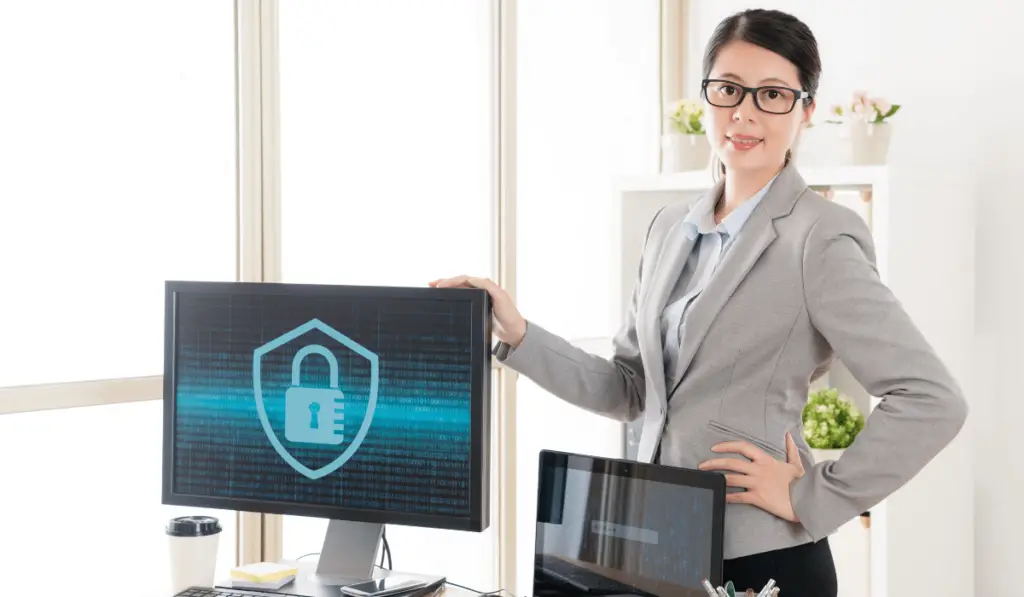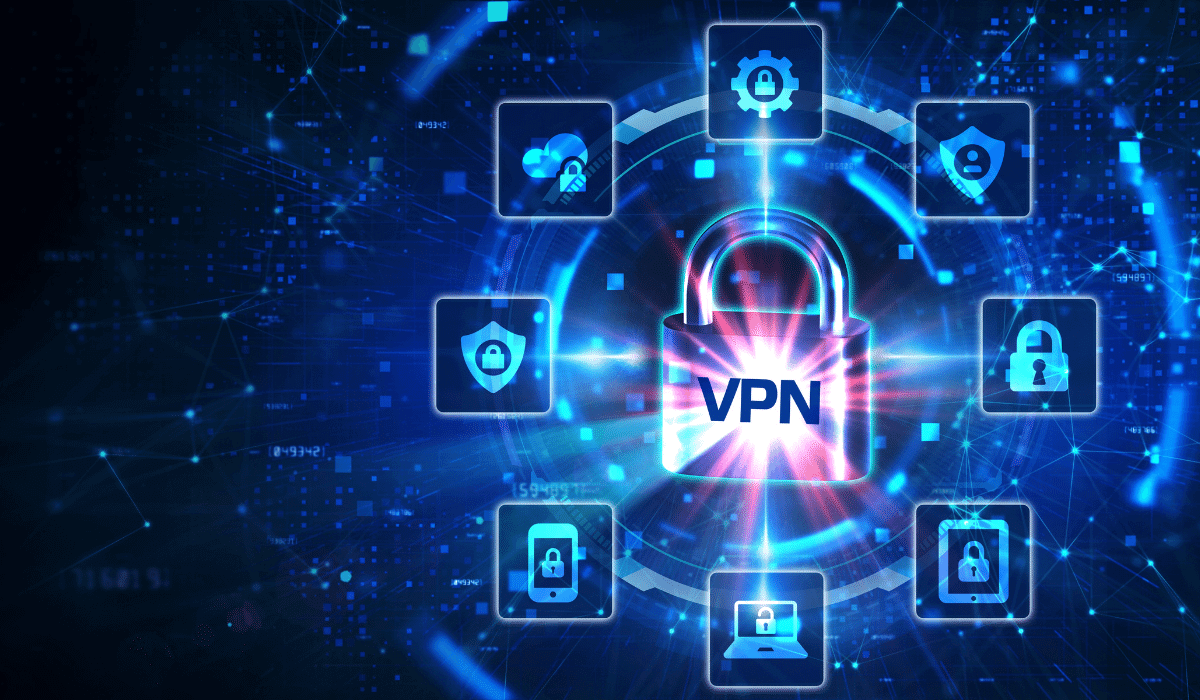With so many different VPNs on the market, it can be tough to know which one is right for you. But by considering your needs and doing some research, you should be able to find the perfect VPN for your needs. But let’s first understand a few things to make your decision easy.
Virtual Private Networks, (or VPNs for short) allow users to securely connect themselves with another network over the internet.. VPNs can be used to access region-locked content, bypass firewalls, and protect your data from eavesdroppers. When you connect to a VPN, all of your traffic is routed through an encrypted tunnel, making it difficult for anyone to snoop on your activity.
The most common types of VPNs are PPTP, L2TP/IPsec, SSTP, and OpenVPN. PPTP is the oldest and most compatible type of VPN, but it is also the least secure.
L2TP/IPsec is more secure than PPTP, but it can be slower and less compatible. SSTP is only compatible with Windows, but it is very fast and very secure. OpenVPN is the newest and most secure type of VPN, but it can be more difficult to set up.
No matter which type of VPN you choose, you will need to install a VPN client on your computer or mobile device in order to use it. There are a lot of different VPNs out there, and it can be tricky to know which one to choose.
Here Are 10 Important Things to Look for When Choosing a VPN:
1. Firstly, Understand Why You Need a VPN Service
There are many reasons why you might need a VPN, but here are three of the most important ones. First, if you use a public Wi-Fi network, for example, your data could be intercepted by someone else on the network. By using a good VPN, you can ensure that your critical data is safe and secure.
Second, VPNs can help to improve your online security. When you connect to the internet through a VPN, all of your traffic is routed through the VPN server. This means that if any hackers try to access your data, they will only be able to see the VPN server’s IP address, not yours.
Finally, VPNs can help to bypass internet censorship. You may already know that in some countries, the government censors some specific websites and blocks access to them. However, if you use a VPN, you can connect to a server in another country where the website is not censored. This allows you to access blocked websites and view censored content.
2. Avoid Using a Free VPN
There are a lot of free VPNs out there, but they all have one thing in common: You’ll get what you pay for. In most cases, you become the product for FREE VPN services. They show ads, provide slow connections, and may sell your data to third parties to cover the service operating costs.
Some free VPN apps may ask for permissions that seem unnecessary or dangerous – like access to all of your phone information (including call history). Others could potentially leak user data if logs are kept intact by developers who use them maliciously; though this isn’t common practice among reputable companies nowadays. So, be extra careful, if you still want to use a free VPN service.
See Also: How to Fix Windows Couldn’t Automatically Bind the IP Protocol Stack to the Network Adapter
3. Check VPN Service’s Privacy Policy
Not all VPNs are created equal, and it’s important to check a VPN’s privacy policy before you use it. Otherwise, you could end up inadvertently sharing your personal data with third parties. A VPN’s privacy policy should spell out exactly what data is collected and how it is used. It should also explain what security measures are in place to protect your data.
If a VPN doesn’t have a clearly written privacy policy, or if the policy is filled with confusing legal jargon, it’s best to avoid using that VPN. Taking the time to read a VPN’s privacy policy may seem like a chore, but it’s an important step in ensuring your online privacy.
4. Choose a VPN Service Operating from the Country with Strong Privacy Laws
One of the most important factors to consider when choosing a VPN is the provider’s home country. VPN providers based in countries with strong data protection laws are more likely to protect their users’ privacy than those based in countries with weak data protection laws.
VPN services based in countries with strong censorship laws are also more likely to provide robust encryption and other features that help to defeat censorship. Choose a VPN service that is based in a safe jurisdiction, such as the United States or the United Kingdom. This will ensure that they are subject to strict data protection laws and will not be able to hand over your information to any third parties.
Also Read: What Should Companies Do to Protect Cloud Data?
5. Your VPN Service Must Have These Security and Privacy Features

Encryption: Make sure that the VPN uses strong encryption, such as AES 256-bit encryption. This will make it much more difficult for anyone to snoop on your traffic or hack into your device.
No Logging Policy: A good VPN should have a strict no logging policy in place. This means that they do not keep any logs of your online activity, so even if someone did manage to hack into their servers, they would not be able to see what you had been doing.
Kill Switch: A kill switch is a vital security feature that will prevent your traffic from leaking if the VPN connection drops for any reason. This means that even if someone does manage to hack into your device, they will not be able to see what you are doing online.
DNS Leak Protection: DNS leak protection ensures that your DNS requests are always sent through the VPN tunnel, so even if the VPN connection drops, your DNS requests will not be leaked. This is a vital security feature, as it prevents hackers from being able to see which websites you are visiting.
IPv6 Leak Protection: IPv6 is the next generation of Internet Protocol, and it is slowly starting to be used by more websites and devices. However, it is not yet fully supported by all VPNs. If you want to make sure that your traffic is always protected, choose a VPN that offers IPv6 leak protection.
WebRTC Leak Protection: WebRTC is a technology that allows browsers to communicate with each other without the need for plugins or other software. However, it can also be used to leak your IP address if not properly configured. Make sure that your VPN has WebRTC leak protection to prevent this from happening.
Split Tunneling: Split tunneling is a handy feature that allows you to choose which traffic goes through the VPN tunnel and which does not. This can be useful if you want to ensure that only sensitive traffic is protected by the VPN.
6. Consider VPN’s Speed, Number of Connections Allowed, and Server Locations
It is important to consider which locations you need and don’t just go for the vendor with the largest number of servers. The quality may not always meet your standards when renting from all over the world, so make sure that before signing up or installing any software on our device we do thorough research into their track record in terms of customer support especially if there’s a problem later down the road!
Hackers are always coming up with new ways to exploit vulnerabilities in software. By keeping your software up to date, you can help patch any security holes that may exist. Also, look for a VPN with good speeds if you want to avoid lag and slowdowns. A good connection won’t affect your internet speed too much because it’ll take time for the traffic through our servers before being encrypted, but we still recommend choosing one that offers outstanding Performance!
You May Like: 12 Best Firewalls for Small Businesses
7. Do Not Trust Online Reviews of a VPN Service Easily
Some people want the most bang for their buck when it comes to purchasing a VPN. That’s why there are so many comparisons and reviews available online; some of them paid by advertisers while others offer more honest feedback from actual users who’ve tried out different services before arriving at this decision-making point in your life (or business).
However, not all sites claiming independence can be trusted because they might contain affiliate links which means that should you buy something after clicking on one such banner ad or another type of advertisement then maybe partway through the transaction someone sends money back into their pocket…yikes! So, be extra careful and consider the advice of trusted reviewers only.
8. Love Downloading? You May Need a Torrent-Friendly VPN
If you want to torrent, your VPN should have no logs and strong security. It’s also important that P2P-friendly servers are present in order for downloading files quickly without interruption; this feature makes it possible with the help of peers who share the same interests as ours—and they can do so much more efficiently because their speeds won’t be limited by encryption!
A SOCKS5 proxy server is a unique feature in some VPNs that allow you to download torrent files quickly without interruption. In addition, some providers let users connect directly with their own servers for even faster speeds and increased anonymity while downloading from torrent sites like KickassTorrents or RedTube!
See Also: Should I Get a Paid or Free Antivirus?
9. Consider VPN’s Customer Support
If you ever have any problems with your VPN connection, it is important to be able to get in touch with customer support quickly. Make sure that the VPN provider you choose offers 24/7 customer support in case you ever need help. I would recommend you go for a VPN company with live customer support.
10. The VPN Service Must Provide Money Back Guarantee
Most reputable VPN providers offer a money-back guarantee, so you can try out their service risk-free. This is a great way to make sure that the VPN you choose is the right one for you. These are just some of the most important security and privacy features to look for when choosing a VPN service. Make sure that the provider you choose offers all of these features to ensure that your traffic is always protected.
Conclusion
As you can see, there are many factors to consider when choosing a VPN service. We hope that our list of the 10 things to look for has been helpful. If you have any suggestions or thoughts, please leave them in the comments below. And remember, always use a VPN when streaming content online – it’s your best defense against hackers and identity thieves.





